Greetings, GIScientists, Geographers, and Computer Scientists at UW, Please join us at SMI 415c on Monday, October 31st at 4:30 p.m. for a Roundtable Seminar on the Frontiers of Geospatial Artificial Intelligence (GeoAI) organized by the Humanistic GIS Lab of the Department of Geography. The invited speakers will discuss their recent projects, including Revealing the Flow Patterns Underlying Spatial Distribution Snapshots, Di Zhu, Dept of Geography, Environment, and Society at the University of Minnesota, Twin Cities; Towards a Foundation Model for Geospatial Artificial Intelligence, Gengchen Mai, Dept of Geography,…
Category: Uncategorized
Celebrate GIS DAY 2020 at UW!
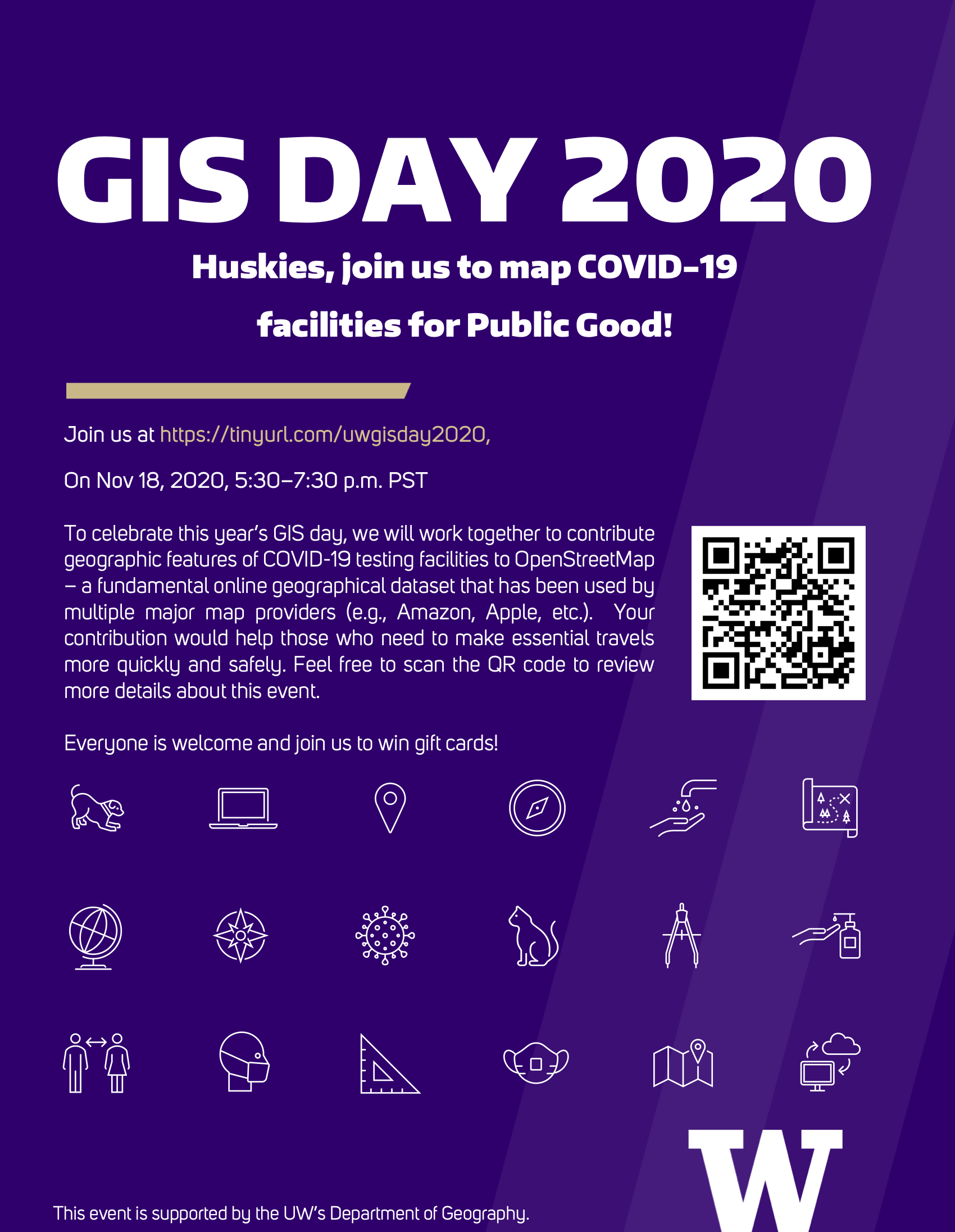
The 22nd GIS Day is coming on November 18th, 2020! Initialized by Esri in 1999, GIS Day is an annual event celebrating the wide use of GIS. On this day, celebrating events will be held by geographers and GIS lovers all over the world. This year, UW’s Department of Geography will hold an event encouraging people to contribute geographic features of COVID-19 facilities to OpenStreetMap (OSM), the most famous community-based map service in the world. As a free editable map,…
Humanistic GIS Laboratory Recruitment 2020-2021

Looking to get more involved on campus? Seeking to explore careers and passions? Read on for exciting opportunities and helpful resources at the Humanistic GIS Laboratory (refer to https://hgis.uw.edu)! This Lab is committed to exploring the Digital Earth as the home of humankind. Driven by this common interest, a group of UW scholars and student researchers have been working together (1) to explore innovative methodologies to improve geospatial technologies with the consideration of human experience, (2) to reflect upon the…
Congratulations, Steven Bao!
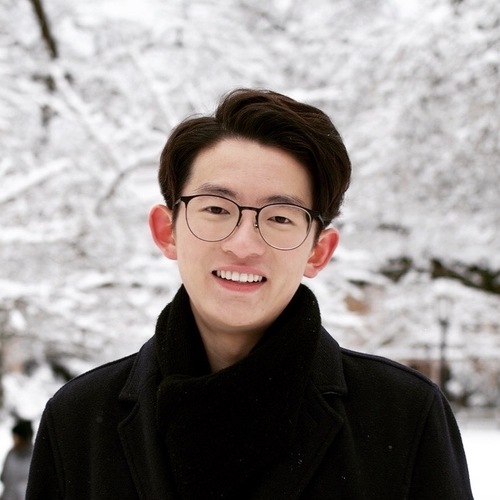
Steven (Xiaoqi) Bao, an undergraduate HGIS member has been awarded an Applied Research Fellowship from the CSDE (check here for details). Steven is a Junior student in geography major, has been working on multiple HGIS projects (e.g., the dynamic COVID-19 dashboard, Point cloud visualization of UW campus). This fellowship will help him to gain practical experience in GIS during the summer of 2020. Congratulations, Steven, We are looking forward to seeing how this fellowship helps you to gain more practical experience…
Undergraduate Student Research Assistant Recruitment for GeoBlockchain Learning and Development

The HGIS Lab (https://hgis.uw.edu) is recruiting two to three talented student assistant volunteers to join our “GeoBlockchain for vulnerable population” project. We are looking for disciplined students to assist in the development of Decentralized Web Mapping Application aimed to support the vulnerable populations in the U.S. Students will get involved in both front- and back-end development of the application. Prior experience in blockchain development is preferred but not required. Responsibilities: Attending virtual meetings with the team member led by the…
Research Talk Notice: When AI encounters Arts and Humanities – Dec 19, 2:00 PM at CMU 202
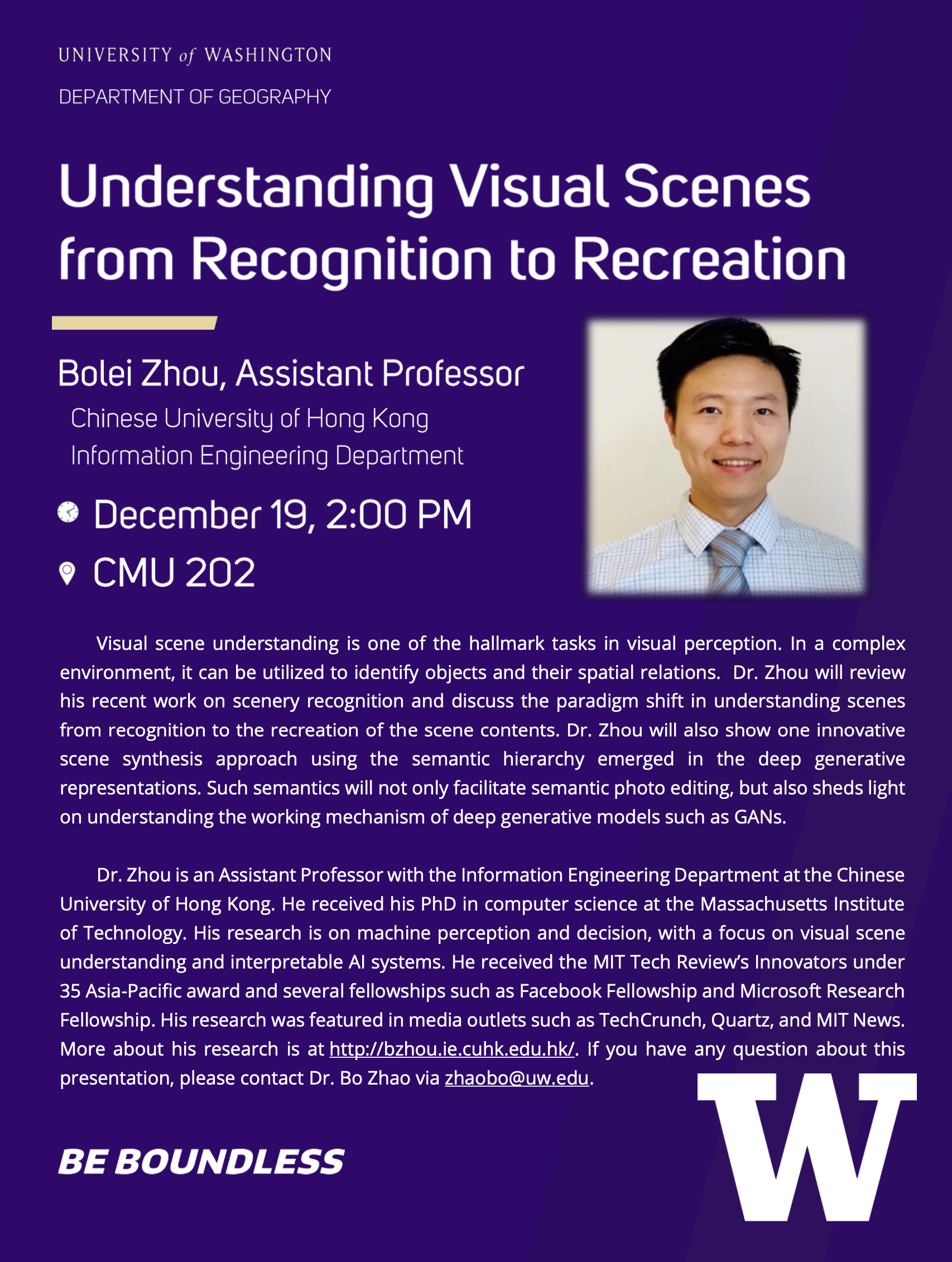
Dr. Bolei Zhou, an Assistant Professor from the Chinese University of Hong Kong, is invited to present his research work at UW. Dr. Zhou has been awarded the MIT Tech Review’s Innovators under 35 in Asia-Pacific. His research is at the intersection of AI and Arts. He has been working on scene recognition and creation using Deep Learning and GANs (Generative Adversarial Networks). His innovative work helps us to better understand the thorny DeepFakes and also shed light on a potential direction in Place-Based GIScience….
Undergraduate Student Research Assistant Recruitment
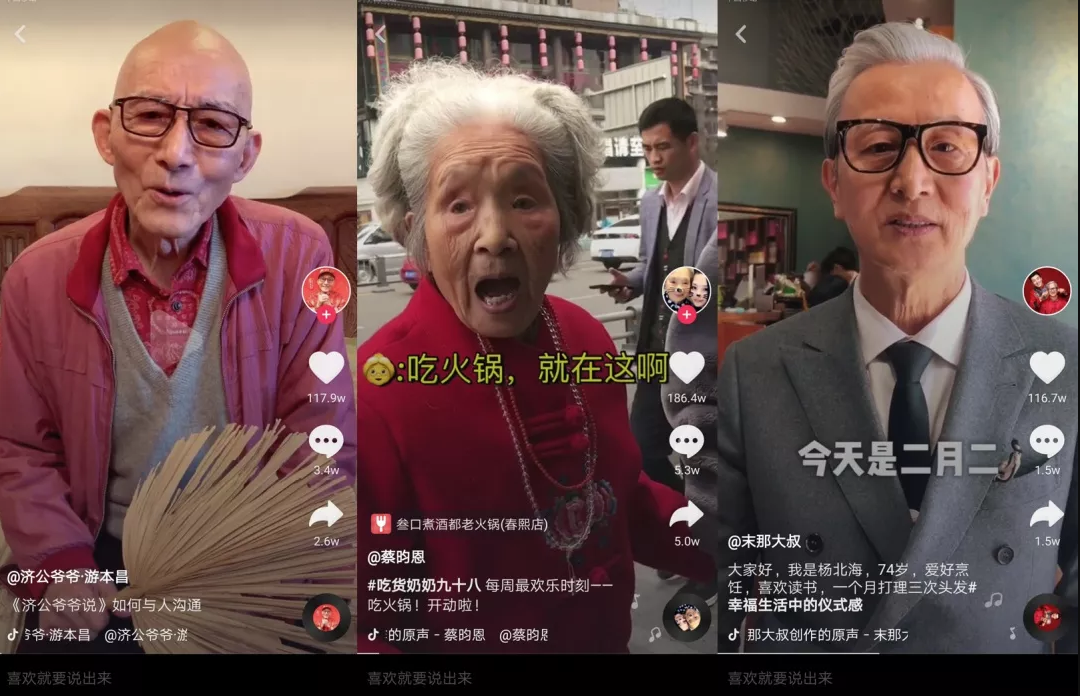
The HGIS lab plans to recruit several student volunteers for an ongoing project to understand how TikTok (a social media video app) serves as an emotional care space for Chinese older people. The completion of this project highly relies on collecting social media data from TikTok, analyzing, and visualizing such a big dataset, and finally, we hope to draw meaningful insights from the empirical study. The project is currently recruiting undergraduate research assistants to help with data gathering and data analysis….
“GIScience in the Post-Truth Era” Session at the Denver AAG
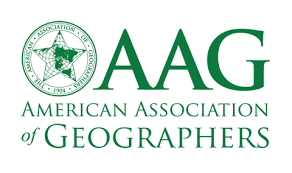
The word “post-truth” was named the 2016 Word of the Year by Oxford Dictionary due to its spiking appearance in social media and news coverage of the Brexit referendum and the U.S. presidential election. While the ramifications of post-truth have focused on social, political, and ethical concerns, the issue advocates for a new and critical view of spatial information, especially the fake spatial information in social media (e.g. Facebook check-in, geotagged tweet, location-based review). The inconsistency between the fake spatial…